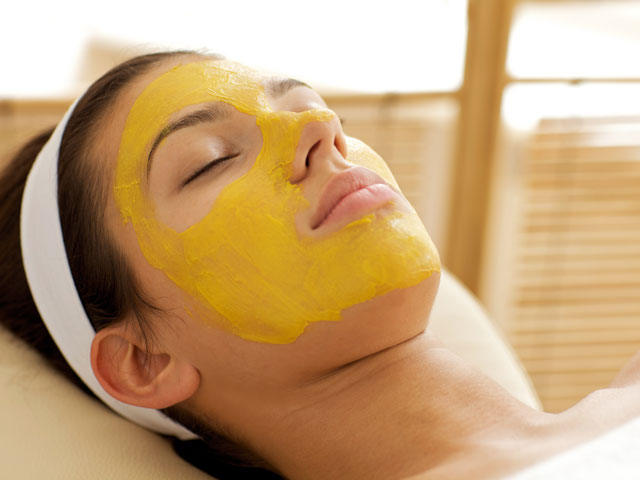Oily skin can be a relentless adversary on the quest for flawless, radiant skin. Characterized by excess sebum production, it often leads to enlarged pores, acne breakouts, and a perpetual shine that can be challenging to manage. Fortunately, there’s a plethora of remedies and strategies to balance oil production, reduce breakouts, and unveil a healthy, glowing complexion. In this comprehensive guide, we’ll delve into the causes of oily skin and explore effective remedies to restore balance and promote skin health.
Understanding Oily Skin
Genetics and Hormonal Influences
Oily skin can be influenced by genetic factors and hormonal changes. Hormones, especially androgens like testosterone, stimulate sebaceous glands to produce more oil. Additionally, hormonal fluctuations during puberty, menstruation, and pregnancy can exacerbate oily skin conditions.
Skincare Routine
The products and techniques you use in your skincare routine play a crucial role in managing oily skin. Harsh cleansers and over-exfoliation can strip the skin of essential oils, triggering an overproduction of sebum in response.Opt for gentle, non-comedogenic products to maintain a healthy skin barrier.
Remedies for Oily Skin
Balanced Cleansing
Use a gentle, sulfate-free cleanser to remove excess oil and impurities without compromising the skin barrier. Consider double cleansing, incorporating an oil-based cleanser followed by a water-based one, to effectively remove both oil-based and water-based impurities.
Exfoliation
Regular exfoliation helps unclog pores and remove dead skin cells that can contribute to oil buildup. However, be cautious not to over-exfoliate, as this can irritate the skin and exacerbate oil production. Opt for chemical exfoliants like salicylic acid or glycolic acid, which are effective yet gentle.
Hydration
Surprisingly, keeping the skin well-hydrated can help regulate oil production. When the skin is dehydrated, it may produce more oil to compensate. Use a lightweight, oil-free moisturizer to maintain hydration without adding excess oil to the skin.
Clay Masks
Incorporate clay masks into your skincare routine. Clay, such as kaolin or bentonite, can absorb excess oil and impurities, leaving the skin refreshed and mattified. Use these masks once or twice a week for best results.
Oil-Free Sunscreen
Sunscreen is a non-negotiable step in any skincare routine. Opt for a broad-spectrum, oil-free sunscreen with at least SPF 30 to protect your skin from harmful UV rays without adding extra shine.
Healthy Diet
A balanced diet rich in antioxidants, vitamins, and omega-3 fatty acids can contribute to overall skin health. Foods like fruits, vegetables, and fish can help regulate oil production and promote a radiant complexion.
Tips for Oily Skin
Managing oily skin can be a challenging but rewarding endeavor. Here are some practical tips to help you control excess oil and promote a healthier complexion:
Gentle Cleansing
Start your skincare routine with a mild, sulfate-free cleanser. Avoid harsh, abrasive soaps that can strip your skin of its natural oils, prompting it to produce even more sebum. Cleanse your face twice a day to remove excess oil, dirt, and impurities.
Oil-Free Moisturizers
Contrary to common belief, even oily skin needs hydration. Choose oil-free, non-comedogenic moisturizers that provide adequate hydration without clogging pores. Hydrated skin is less likely to overproduce oil to compensate for dryness.
Regular Exfoliation
Exfoliation helps remove dead skin cells and prevent clogged pores. Opt for gentle exfoliants with ingredients like salicylic acid or glycolic acid. Limit exfoliation to 2-3 times a week to avoid irritation and overstimulation of oil glands.
Clay Masks
Clay masks can be beneficial for oily skin as they absorb excess oil and impurities. Use a clay mask once a week to help control shine and maintain a matte complexion.Look for masks containing ingredients like kaolin, bentonite, or charcoal.
Oil-Free Sunscreen
Sunscreen is crucial for all skin types, including oily skin. Choose a broad-spectrum sunscreen with at least SPF 30 that is labeled as oil-free or non-comedogenic. Apply sunscreen daily, even on cloudy days, to protect your skin from harmful UV rays.
Blotting Papers
Keep blotting papers handy throughout the day to absorb excess oil. Instead of rubbing your face, gently press the blotting paper onto oily areas to remove shine without disturbing your makeup.
Use Matte Makeup
When it comes to makeup, opt for matte formulations. Matte foundations, powders, and blushes can help control shine and give your skin a more matte finish.Avoid heavy, creamy products that can contribute to a greasy appearance.
Hydrate with Water-Based Products
Choose water-based or gel-based skincare products instead of heavy creams or oil-based formulations. These lightweight products provide hydration without adding extra oil to your skin.
Balanced Diet
Your diet can play a significant role in the health of your skin. Consume a balanced diet rich in fruits, vegetables, and lean proteins. Avoid excessive consumption of sugary and processed foods, as they can contribute to inflammation and skin issues.
Stay Hydrated
Drinking enough water is essential for overall skin health. Proper hydration helps flush out toxins from your body and can contribute to a more balanced complexion. Aim for at least eight glasses of water a day.
Conclusion
Achieving a harmonious balance for oily skin requires a combination of thoughtful skincare practices, a healthy lifestyle, and understanding your skin’s unique needs. Implementing these remedies into your routine, you can bid farewell to excessive shine and welcome a radiant, balanced complexion. Remember, consistency is key, and patience is a virtue when it comes to achieving lasting results in your skincare journey.






